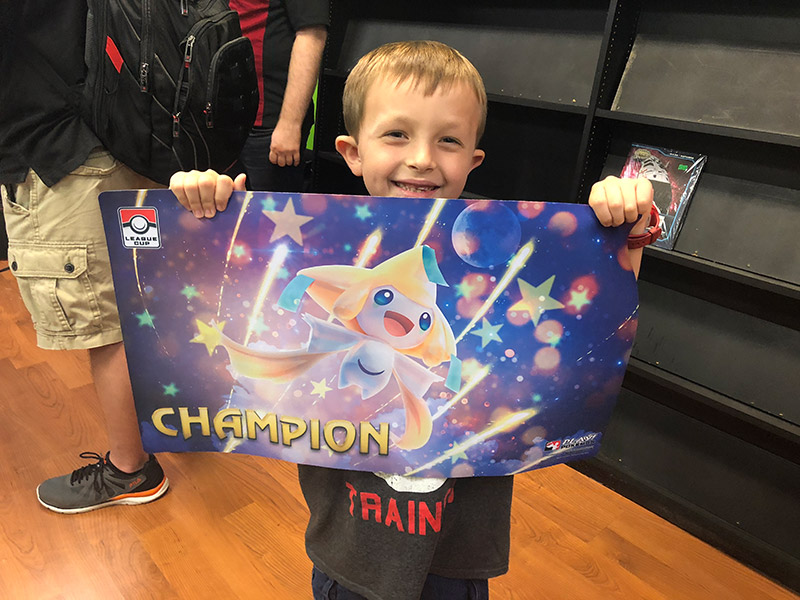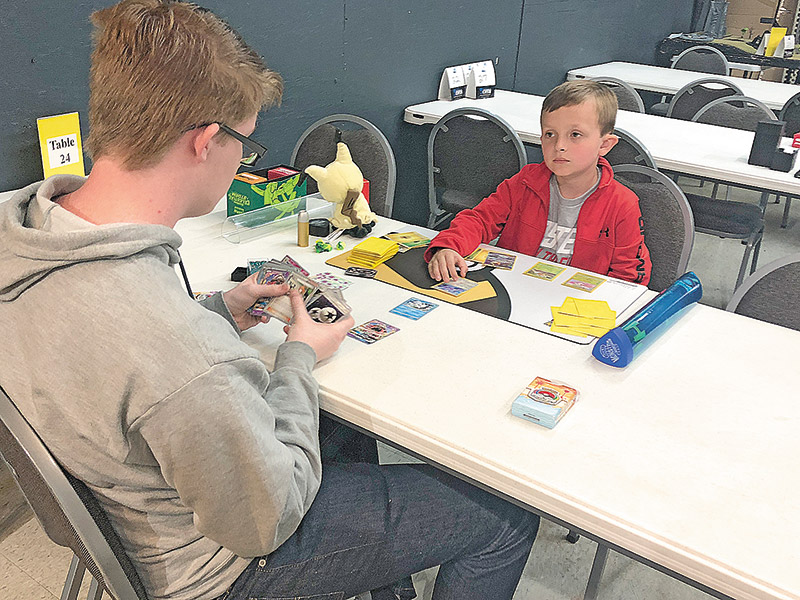Eight-year-old Anderson County student heads to Pokemon World Championship
Clinton resident Jackson Sutton, 8, is headed to the Pokemon World Championship in Washington, D.C.
Pokemon is a card game that’s been around since the 1990s and is probably the second largest trading card game in the world, according to Jackson’s father Ryan Sutton, with Magic: The Gathering as the leading TCG in the world.
Jackson is in the junior’s division, but he often plays against adults. This is his first year playing competitively, and he is one of only around 100 people who have so far qualified to play in the championships so far.
That’s 100 people in the whole world.
“It’s quite an accomplishment,” said Ryan.
If there’s such a thing as a card-playing household, Jackson grew up in one. Ryan used to play and compete in the customizable Star Trek trading card game, although he never went to a world championship. Ryan had friends come to the house that competed, and they shared their knowledge with Jackson when he was even younger. Then, in second grade, Jackson’s teacher used Pokemon cards as a behavior incentive.
“He had no idea what a Pokemon was,” Ryan said. “He had me tell him what they did. So we started playing off and on. Every time, he would beat me and I couldn’t understand how. Why is he beating me? We’d switch decks with each other and he’d beat me again. I’d maybe win one out of 10 times.”
Jackson said he wanted to be world champion one day. Now, he’s almost there.
Tournaments are held throughout the year and players accumulate points as they win rounds. A player has to accumulate 350 points to play in the championship.
“He accomplished that on Wednesday night at a league event at East Town Mall,” Ryan said.
Jackson’s rank is so high that he ends up playing against mostly adults.
“It’s very interesting watching an 8-year-old sitting across the table from someone who is 20 or 30 years old,” Ryan said. “The majority of the time he does beat them.”
Tournaments can be up to six hours long, with match after match after match. It can be very grueling on an 8-year-old, with a lot of mental fatigue that sets in. Each round is usually around 30 minutes long.
Players start with a deck of 60 cards. New cards are released by the Pokemon franchise every month, and each deck is customized by the player. The cards go up in value if they become better in the game, Jackson explained.
“A bunch of the cards rotate out, and they’re not worth anymore,” he said.
Fifteen days before the championship, a new set will be released, so no one will be used to playing with the same cards.
“It’ll be a scramble to know what’s good,” said Ryan. “Certain cards that you didn’t think would be any good will end up being amazing. He’ll have to study and watch internet videos, see what people are doing in Japan.
If you play now and your best cards are rotated out, you’re left with nothing, Jackson said. But the point of the organizers is to make sure you come up with an original idea and strategy.
“There are a lot of nice people,” Jackson said. “They’re not mean. A lot of people helped me when I started playing.”
He enjoys the people, the details of the cards and the traveling.
“He doesn’t like making the deck,” Ryan laughed. “It takes a lot of effort. We work on that, and watch videos and find out what he wants.”
Keeping track of what cards to use is challenging as well.
“One card used to be really good, and now it’s just OK,” Jackson said. “Pikachu Zekrom was very good, but it’s not anymore.”
There’s a finesse to the game that some people possess and some don’t, according to Ryan.
“I don’t know what makes him able to do it,” he said. “He has extremely good gametime decision making skills. He makes the proper decision in the game better than most people would, even adults. I don’t know how he does it, but it’s quite remarkable to watch him.”
The junior level winner of the championships wins a $50,000 scholarship to the college or private school of his or her choice.





